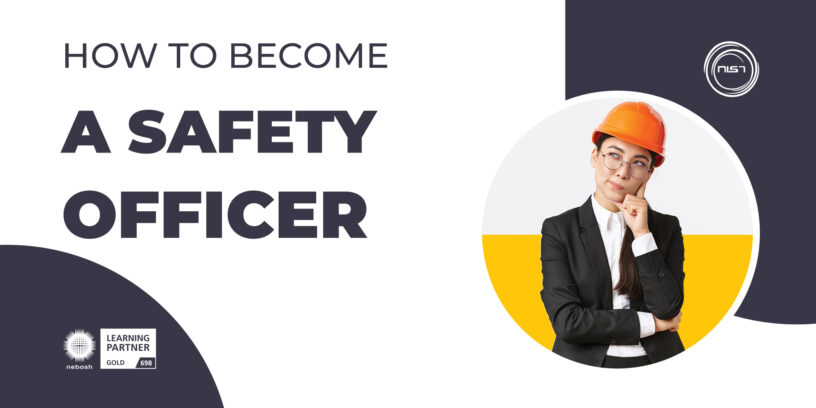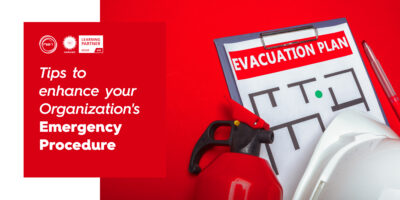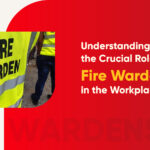HSE basic eligibilities:
Health and safety is one of the noblest professions in the world since it saves lives and property without having a detrimental effect. Every year, at least 1.9 million people die as a result of 19 key occupational risk factors. Nearly 360 million non-fatal occupational accidents occur each year.
People require safety in organisations, manufacturing industry, the construction field or any workplace. Furthermore, any organisation with more than ten employees need one safety personnel. Safeguarding ourselves and our belongings is a critical priority and hence, a safety officer need is required. The role of a safety officer is unavoidable in most places as the incidence of workplace accidents, illnesses, and injuries has increased.
Any bachelor’s degree or diploma along with International Safety certifications like IOSH / NEBOSH, as well as a passion for the safety industry, are essential and the initial step towards a career in the safety field. Let’s look at what else a person has to do or is supposed to do to become a safety officer.
HSE certifications:
The most crucial point is that you might choose this job (HSE) if you are willing to work with commitment and are passionate about the job. However, depending on the type of work and the firm’s requirements, certain qualifications are required, as a degree alone is not sufficient. As previously stated, obtaining a degree is only the first step, therefore, pursuing HSE-related certification courses would be beneficial. To begin with, safety professionals should take a basic course in occupational health and safety, such as IOSH (level 3), to learn the fundamentals of the field. Despite the fact that your IOSH certificate has no expiration date, it is suggested that you undergo an IOSH Managing Safely refresher course every three years to keep your certificate current and effective. This is because health and safety legislation, guidelines, and other factors change throughout time. As a result, renewing your certification will keep you up to date.
Studying for a NEBOSH IGC certification course would be the next step. IOSH would serve as an introduction before moving on to NEBOSH, as previously indicated. Even if a candidate has a specialised degree in relevant to the industry, most industries look for extra, internationally recognised certifications like IOSH, NEBOSH, and so on. Completing these courses would give a safety professional a considerable advantage. In fact, certain organisations require courses like IOSH, NEBOSH, among others, and Gulf countries, in particular, require NEBOSH as a mandatory credential since NEBOSH provides you with a richness of information in the field of health and safety management.
Most employers usually accept NEBOSH IGC (level 3) certification, if not the entire NEBOSH diploma. Learners who have completed the NEBOSH IGC course are in high demand, with the NEBOSH IGC recognised as a relevant criterion in 90% of health and safety job advertising abroad. The NEBOSH IGC course would be beneficial to managers, supervisors, individuals interested in starting a career in HSE, and HSE hopefuls. After finishing the NEBOSH IGC, students can continue their education with the NEBOSH International Diploma (Level 6) or the Environmental Diploma course. Remember that a consistent attempt to advance to the next level will help you advance in your profession. NEBOSH not only assists HSE beginners, but also working professionals seeking management positions.
Refer to the job opening advertisements on our NIST website https://www.nistinstitute.com/jobs.php every week. This can help you obtain a general knowledge of the eligibility criteria that organisations have set.
HSE Experience:
Some organisations need candidates to have prior expertise in the fields of health, safety, and the environment. Candidates with HSE experience and certification, on the other hand, are preferred by recruiters. Some organizations, on the other hand, will hire new employees with any recognised degree if they have a safety course certificate, such as the ‘NEBOSH.’ It isn’t the same for everyone because ‘eligibility’ for ‘specific safety roles’ varies. It differs by organization, as some organisations require a specific safety degree (B.E, BSc, etc. in safety fields) while others do not demand so as the minimum qualification they ask is any degree or diploma with a basic level of safety qualification, as each firm’s work mode is unique.
Expectations from a safety professional in general:
In general, anyone interested in working in the safety field can enrol in courses such as IOSH or NEBOSH and become a safety professional by satisfying the requirements stated below.
- Management skills
- Leadership Skills
- Strong observing, analyzing and hazard identification skills
- Risk assessment & evaluation skills
- Problem-solving abilities
- Effectively & timely Decision-making Skills
- Foster Safety Culture
What does a Safety officer have to do? :
It is your obligation as a safety officer to maintain a safe and healthy workplace. They should conduct risk assessments and update them on a regular basis to ensure that they are current, as well as analyse and alter an organization’s guidelines and regulations as necessary in light of the current situation. Develop and implement policies that are appropriate for the infrastructure, personnel, and nature of the job, as well as other criteria. At least once a year, inspections of the workplace should be conducted. Last but not least, periodically evaluate the organization’s legal compliance.
Listed below are some of the Health and Safety Jobs:
Health and Safety Coordinator
Safety Training officer
Health and Safety Auditor
Health and Safety Specialist
Environmental Scientist
Environmental Consultant
Health and Safety Executive
Health and Safety Manager
Health and Safety Consultant
Health and Safety Officer
Environmental health practitioner
Field Safety Officer
Fire Safety Officer
HSE Site Supervisor
Health and Safety Advisor
Risk Assessor
Waste Management Specialist
Warehouse Manager
Recycling officer
Why NIST:
NIST is an ISO:9001-certified institution and India’s first NEBOSH Gold Learning Partner. Our safety specialists will assist you in becoming the best potential safety expert. Our internationally recognised courses qualify you to work as a world-class safety expert. We value your career aspirations and goals and will work with you to achieve them. With us at NIST, you’ll enjoy a great learning experience! This can help you obtain a general knowledge of the eligibility criteria that organisations have set. Become a safety expert! Be a protector of life and property!! Continue to pursue your safety goals!!!
For further details regarding the course, you can contact our course counsellors @ +91 8056000530 or mail us at info@nistinstitute.com.














Leave a Reply